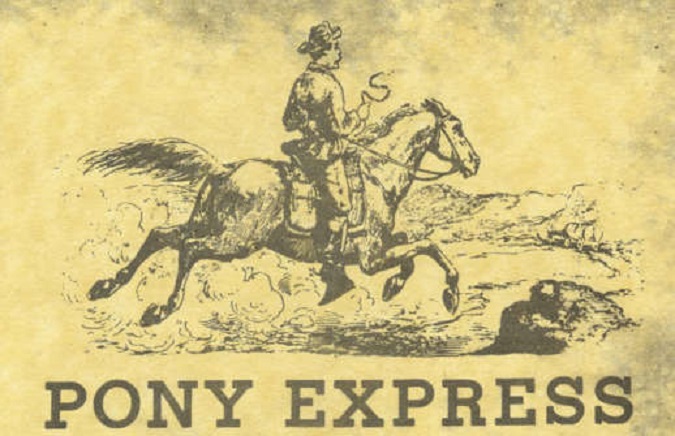
In the annals of American history, the Pony Express occupies a legendary status as a symbol of speed, courage, and innovation. During the mid-19th century, this groundbreaking mail delivery system bridged vast distances and connected the East and West coasts of the United States. In this article, we delve into the captivating history of the Pony Express, tracing its origins, operations, and enduring legacy.
Origins and Inception
The Pony Express was born out of the necessity to establish a fast and reliable communication link between the eastern and western regions of the United States during a time of rapid expansion. The California Gold Rush in the late 1840s had spurred westward migration and the need for efficient mail delivery became paramount.
The Concept Takes Shape
In 1854, entrepreneur William H. Russell and partners William B. Waddell and Alexander Majors founded the Central Overland California and Pikes Peak Express Company. They envisioned a system that would dramatically reduce the time it took for messages to traverse the vast expanse between Missouri and California. Their plan involved a relay of riders, who would cover long distances on horseback, handing off mail pouches at designated stations along the route.
Operational Challenges and Logistics
The Pony Express route spanned approximately 1,900 miles, extending from St. Joseph, Missouri, to Sacramento, California. The trail took riders through rugged terrain, hostile environments, and encounters with Native American tribes. To ensure maximum speed and efficiency, lightweight riders were chosen, and sturdy, fast horses were selected for the demanding journey.
The riders faced numerous hazards, including harsh weather conditions, treacherous river crossings, and the ever-looming threat of attacks. However, their unwavering determination and commitment to swift delivery kept the Pony Express running against all odds.
Triumphs and Notable Feats
Despite its relatively short lifespan, the Pony Express achieved several remarkable milestones. On April 3, 1860, the inaugural run commenced simultaneously from both the eastern and western ends. The first westbound trip covered over 1,900 miles in an astonishing ten days and seven hours, while the first eastbound journey took only eleven days and twelve hours.
The Pony Express also played a pivotal role in delivering President Abraham Lincoln’s inaugural address, allowing it to reach California in a record-breaking seven days and seventeen hours. Such accomplishments cemented the Pony Express’s reputation as a symbol of speed and efficiency.
The End of an Era
The rise of the telegraph, which offered instantaneous long-distance communication, rendered the Pony Express obsolete. The completion of the Transcontinental Telegraph line in October 1861 marked the beginning of the end for this audacious mail delivery system. The final Pony Express run took place on October 26, 1861, marking the conclusion of an era that had captivated the nation’s imagination.
Legacy and Commemoration
The Pony Express may have been short-lived, but its impact on American history remains significant. The daring riders and their indomitable spirit symbolize the spirit of exploration, adventure, and innovation that characterized the westward expansion of the United States.
Today, several museums, historical reenactments, and monuments pay tribute to the Pony Express and its legacy. These commemorations ensure that the daring exploits of the riders and the pioneering spirit they embodied are remembered for generations to come.
Conclusion
The Pony Express stands as a testament to the human drive for progress and the indomitable spirit of those who dared to conquer vast distances in the pursuit of efficient communication. Though its existence was brief, its legacy endures, reminding us of a remarkable chapter in American history and the unwavering commitment of those who embarked on a daring journey to bridge a divided nation.
Related Articles & Free Email Newsletter Sign Up
Alpaca Mummies Tell of Lost Fortune
Bizarre and Humorous Animal Laws




Comment here